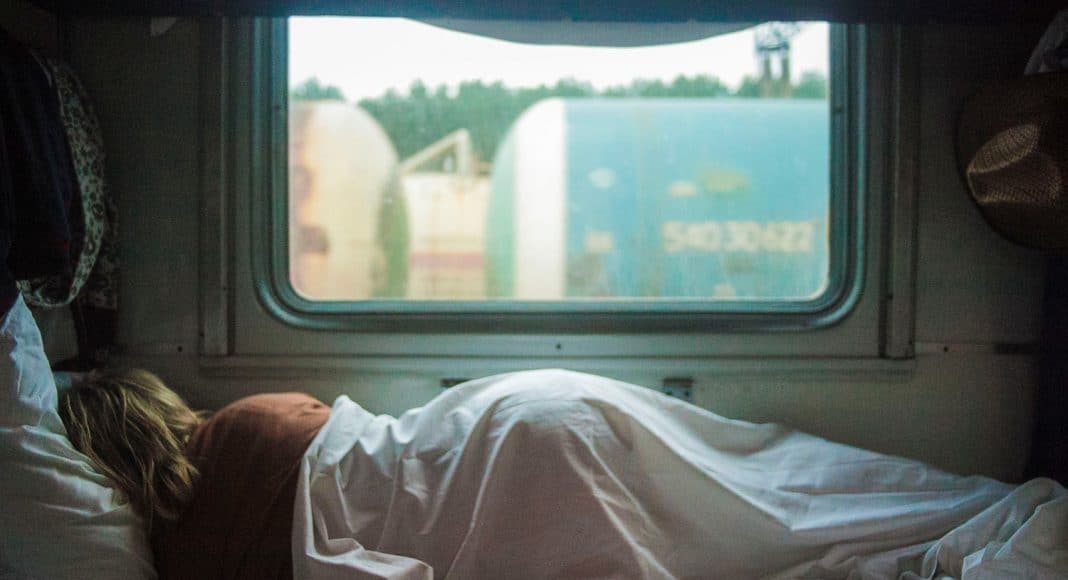Falling asleep is as easy as laying down and closing your eyes. But about 40 million Americans have some sort of sleep issues and marijuana can help, but first, let’s explain exactly why does marijuana make you sleepy.
The Centers for Disease Control and Prevention considers sleep apnea and other related disorders as a dangerously hidden public health issue. According to the CDC, “persons experiencing sleep insufficiency are also more likely to suffer from chronic diseases such as hypertension, diabetes, depression, and obesity, as well as from cancer, increased mortality, and reduced quality of life and productivity.”
-
Related Story: 5 Sleep Tricks For When You’ve Tried Everything
An estimated 10 million Americans have a prescription for Ambien or some other pharmaceutical sleep medication and 4 percent of adults report that they have taken a sleeping pill or sedative in the previous month. Some of the more common side effects for these pills include:
- Daytime drowsiness, dizziness, weakness, feeling “drugged” or light-headed
- Tired feeling, loss of coordination
- Stuffy nose, dry mouth, nose or throat irritation
- Nausea, constipation, diarrhea, upset stomach
- Headache, muscle pain
As more and more states move to legalize cannabis, more of us are looking at the herb as an alternative to pharmaceuticals. Studies have shown that cannabis can improve the duration and quality of sleep. A 1973 study suggests that THC reduces the amount of time it takes those with insomnia to fall asleep. Another study found that those that regularly used THC fell asleep faster.
-
Related Story: Is Marijuana A Natural Sleep Aid?
Before you grab your bong, here are a few things you should know:
Know The Difference Between Indica And Sativa
Most regular cannabis consumers know that Indica strains provide more of a “body high.” These strains are preferred if you are looking to relax and sleep. Sativa strains are provide a more upbeat experience and can often interfere with sleep.
-
Related Story: Everything You Need To Know About Cannabis and Sleep Apnea
Ask your budtender for help identifying “sleep strains.” You may have to do a little of trial and error before you find the right strain for you.
The Cannabis Combo
The science of why cannabis promotes sleep is not entirely clear, but some research suggests that the terpenes in cannabis are doing the work. Terpenes are the aromatic compounds in marijuana and they interact with your body in favorable ways.
The terpenes found in lavender and chamomile both promote sleep. Working in combination with cannabis, a soak in a lavender-infused bath or a cup of chamomile tea before bed may work. Aromatherapy is another option.
Beware Of The Edible “Hangover”
Edibles are another great way to get a good night’s sleep. These typically pack a stronger punch and stay in your system much longer than smoked marijuana.
The downside of edibles? Since the cannabinoids are processed differently and stay in your system longer, you may wake up still feeling the effects of the dose. Typically, the high dissipates after a hot shower and a cup of coffee or tea.
PTSD Sufferers: Take Note
Studies have also found that cannabis is effective for treating nightmares in military personnel with PTSD. Many veterans use cannabis as a sleep aid in order to keep the nightmares at bay. If you suffer from PTSD or anxiety, cannabis may work for you.
Final Thoughts
There are now 29 states that have a medical marijuana program, but not one include sleep disorders as a qualifying condition. Why? There simply is not enough research. But if you want to steer clear of sleeping pills, cannabis may help.
Your body and your brain need seven to nine hours of sleep. Your health depends on it.


